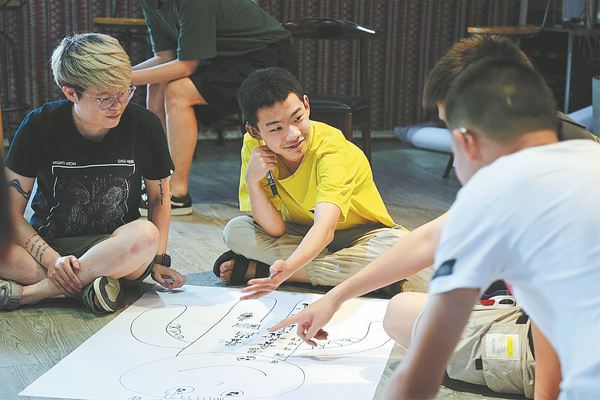

She then got hold of Chen Si'an, a playwright and theater director with a similar interest in inclusive arts, who served as a tutor on the project.
In her previous theater practice, Chen Si'an had been consciously working to promote equal access, including providing subtitles and audio descriptions in online screenings of stage plays, and hiring sign-language interpreters when hosting events.
"The more I engaged, the more I wanted to contribute, not only to provide accessibility to people with challenges, but also to create together with them," she says at the recent Third UK-China Disability Arts Forum, where a short documentary of the project was screened.
Therefore, when Dodo invited her to join the workshop, she accepted the invitation and made preparations right away, including designing her curriculum based on the participants, and researching the experience of similar workshops from home and abroad.
For each day, they designed a series of writing, storytelling and theater activities that aimed to fully engage the children in exercising their imagination, finding their own voices, enriching the details in their stories and, in the end, enacting the stories with both sign and body language.
However, the actual execution experienced all sorts of obstacles. The team initially wanted to recruit around 15 participants, but only five children and teenagers joined. Even among those, some only attended under the persuasion of their parents.